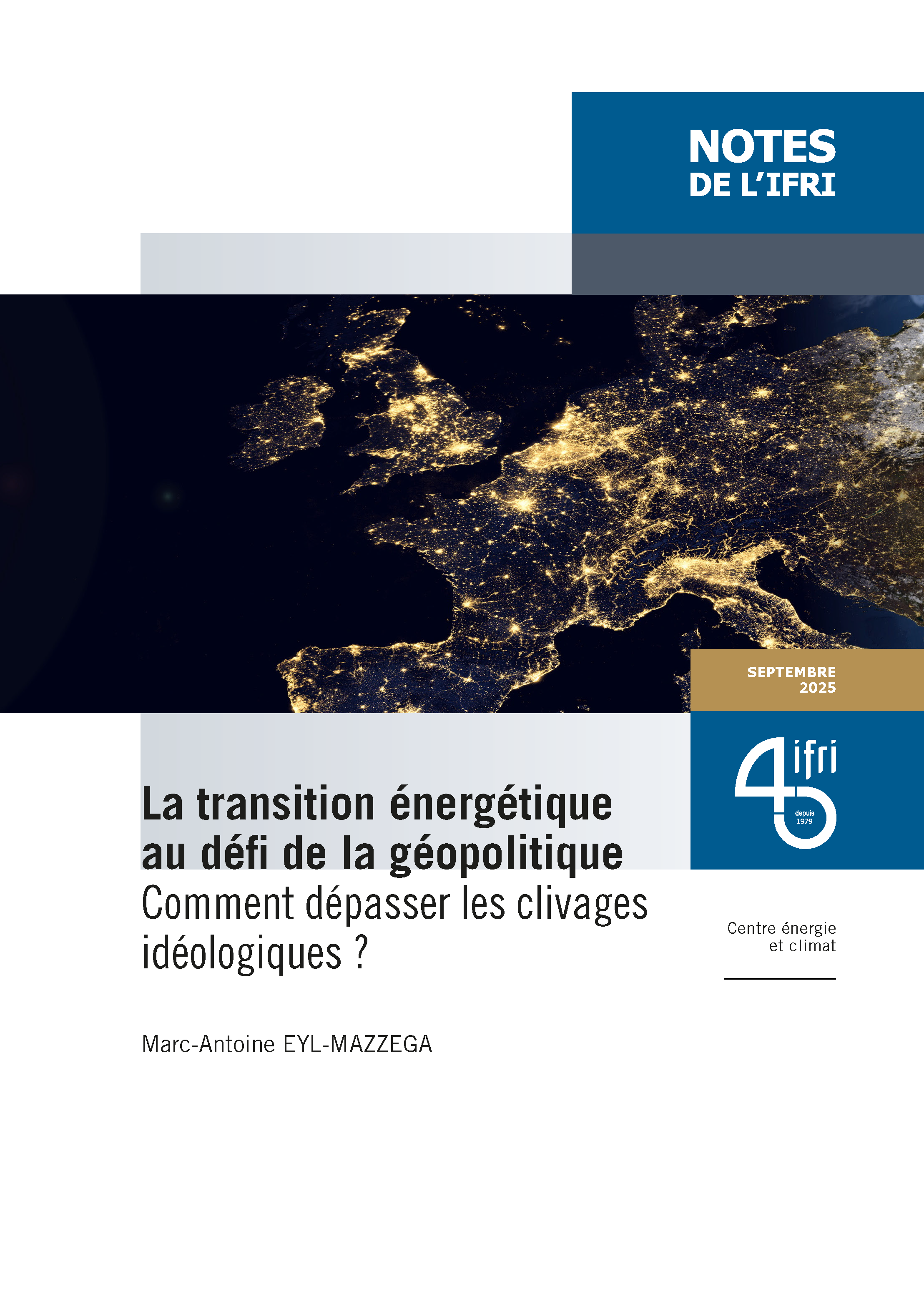The Energy Transition Faces Geopolitical Challenges. How Can Ideological Divides Be Overcome?

President Trump’s positions and policies, combined with record coal consumption and booming global electricity demand, geo-economic confrontation, and widespread concerns about energy security, are changing the game when it comes to understanding realistic decarbonization trajectories. The war in Europe is intensifying competition between defense and transition budgets. This is also the case elsewhere in the world.

President Trump’s positions and policies, combined with record coal consumption and booming global electricity demand, geo-economic confrontation, and widespread concerns about energy security, are changing the game when it comes to understanding realistic decarbonization trajectories. The war in Europe is intensifying competition between defense and transition budgets. This is also the case elsewhere in the world.
International fragmentation is now compounded by worrying national fragmentation in the energy transition, in a context of budgetary and political crisis, where some are seeking to undermine technologies, policies, institutions, and companies rather than devising an essential long-term energy and climate strategy commensurate with this brutal deterioration in the global context. The challenge is no longer to discuss the merits of this or that technology, or to call for a pause or acceleration of the transition in the name of saving industries or the planet, but to develop a realistic and credible approach to the relationship between industrial policy, decarbonization, societal acceptability, value chain resilience, and energy security in a highly constrained environment where China and now also the United States have a major impact on our economies and constrain our choices.
This Ifri Paper aims to shed light on the French and European debate on the rapid transformation of energy markets and policies worldwide. The goal is to refocus efforts and priorities on keeping the rise in temperatures below 2 °C, focusing on a few key issues that could enable rapid reductions in emissions and promote a certain international convergence. This concerns the deployment of renewable energies and the reduction of coal and oil in industry, electricity production, methane leaks, and energy efficiency, particularly for air conditioning and new uses. There is no single, universal solution to ensure the transitions. Nothing is linear, and we must now, based on the world as it is and not as it should be or as we would like it to be, identify an even more effective, detailed, and focused path to achieve better results. This means choosing our battles and reformulating certain previous priorities, as well as considering reducing emissions where it is cheapest to do so : abroad, in countries that are implementing credible decarbonization strategies.
The full version of the study is only available in French.

Available in:
Themes and regions
ISBN / ISSN
Share
Related centers and programs
Discover our other research centers and programsFind out more
Discover all our analysesFinancial Tools for Boosting Resilience of CRM Value Chains and Strategic Stockpiling
Critical Raw Material (CRM) value chains are more vulnerable than ever and entire vital industries in Europe are now at risk if supplies are not secured through strategic and urgent actions, given mounting geopolitical confrontation, resource nationalism, growing demand and limited supply increase.
Placing the EU on a Warfare Footing: Energy and Raw Materials Priorities for 2026
The year 2025 has confirmed that one must prepare for much worse in the field of geopolitics and geoeconomics as the intensity and frequency of shocks increase and as the European Union (EU) has no more stable flanks now that crises with the United States (US) become so frequent and reveal a systemic rift. In the world, barriers to trade multiply and dependencies are weaponized.
Brazil One Year Away from the October 2026 General Elections
Brazil’s general elections will be held on October 4, 2026, to elect the president, vice-president, members of the National Congress, governors, deputy governors and state legislative assemblies. For the presidential and gubernatorial elections, a second round will be held on October 25 if no candidate obtains a majority of the votes in the first round.
COP30: An Inflection Point for Climate Action and Governance
The 30th Conference of the Parties (COP30), opening in Belém, Brazil, on November 10th 2025, convenes at a perilous moment.












